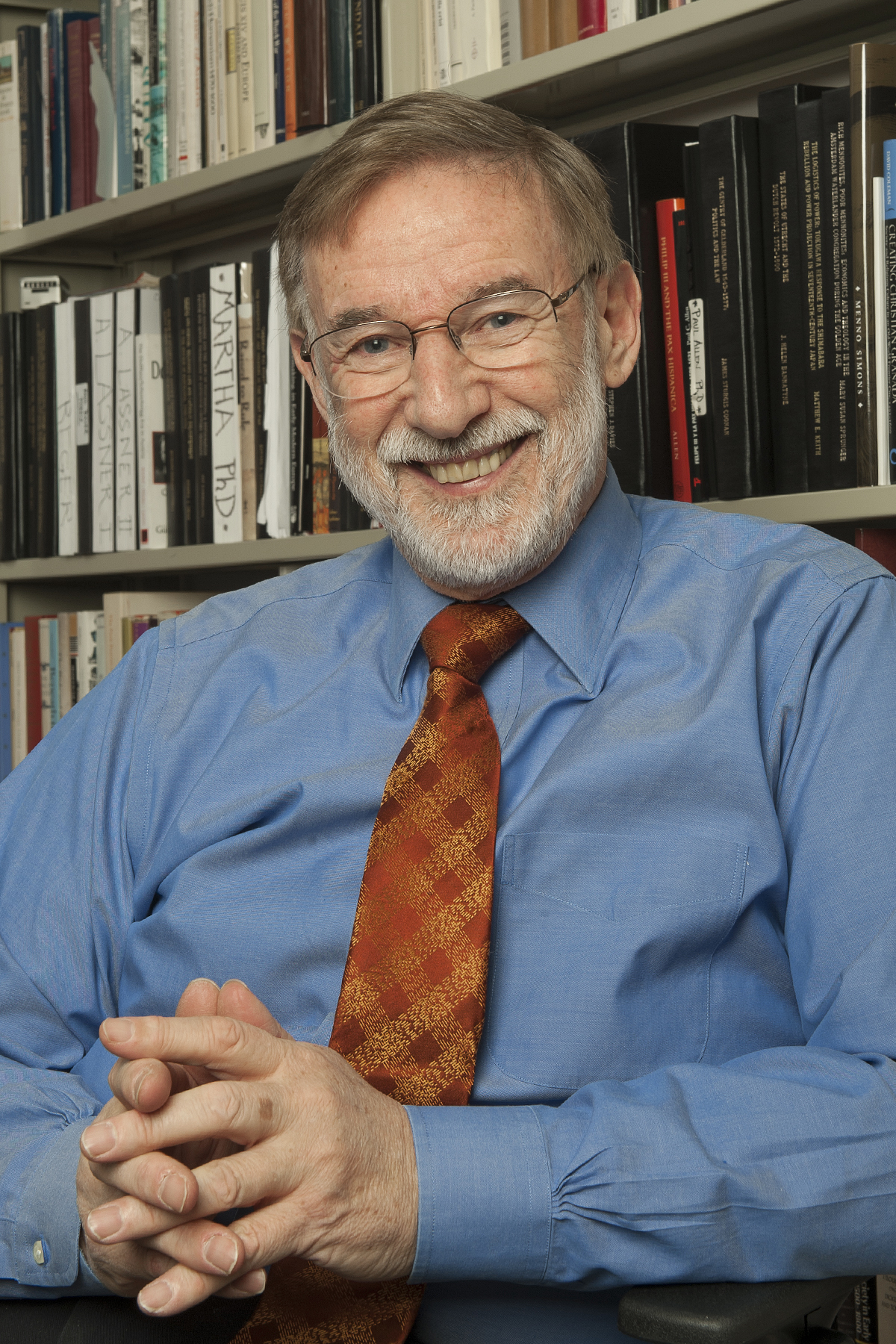 Historian Geoffrey Parker will discuss climate change in the 17th century during the annual Vincent de Paul lecture at DePaul University. (Photo by Jo McCulty)
Historian Geoffrey Parker will discuss climate change in the 17th century during the annual Vincent de Paul lecture at DePaul University. (Photo by Jo McCulty)CHICAGO — Modern climate change may seem unprecedented, yet historian Geoffrey Parker argues that the 17th century offered clues about the social, economic and political struggles caused by extreme weather patterns. Parker will deliver the annual Vincent de Paul lecture at DePaul University during Earth Week, April 20 from 6 to 8 p.m. at Wish Welcome Center, 2400 N. Sheffield Ave. The event is
free and open to the public, but a ticket is required.
Parker is the Andreas Dorpalen Professor of European History and an associate of the Mershon Center at The Ohio State University. He has written or co-written 39 books focusing on the social, political and military history of early modern Europe. In 2012 the Royal Dutch Academy recognized these achievements by awarding him its biennial Heineken Foundation Prize for History.
In his book “Global Crisis: War, Climate Change and Catastrophe in the Seventeenth Century,” Parker surveys the broad impact that long, harsh winters and cool, wet summers have had on human populations across the globe. Parker uses firsthand accounts and scientific evidence to examine how changing weather patterns caused famines, wars and political upheaval during that time. The book won the Society of Military History’s Distinguished Book Prize and a medal in 2014 from the British Academy for “a landmark academic achievement … which has transformed understanding of a particular subject.”
The lecture is hosted by DePaul’s Office of Mission and Values and will be followed by a panel discussion with Elisabeth Moyer and the Rev. Edward Udovic, C.M.
Moyer, associate professor in the Department of Geophysical Sciences at the University of Chicago and co-director of the Center for Robust Decision-making in Climate and Energy Policy, will address the likely impacts of climate change in the coming decades.
Udovic, a historian and university secretary at DePaul, will respond to Parker’s lecture and discuss the work of Saint Vincent de Paul, the 17th century priest for whom DePaul University is named.
“The 17th century was Vincent’s century, and the epic religious, geo-political and other struggles that he experienced in France, and to which he and his followers responded, can now be understood within the context of climate change,” said Udovic.
This year Pope Francis is expected to release the first papal encyclical on ecology, which likely will focus on the effects of climate change and its impact on the poor, according to Scott Kelley, assistant vice president with DePaul’s Office of Mission and Values.
“We know that climate change affects poor people disproportionately, and this is a deep Vincentian concern,” said Kelley, who also is an assistant professor in Religious Studies. “At DePaul, our sustainability focus is on how we can use research, our curriculum and community engagement to address these issues.”
###
Media Contact:
Kristin Claes Mathews
kmathew5@depaul.edu
312-241-9856